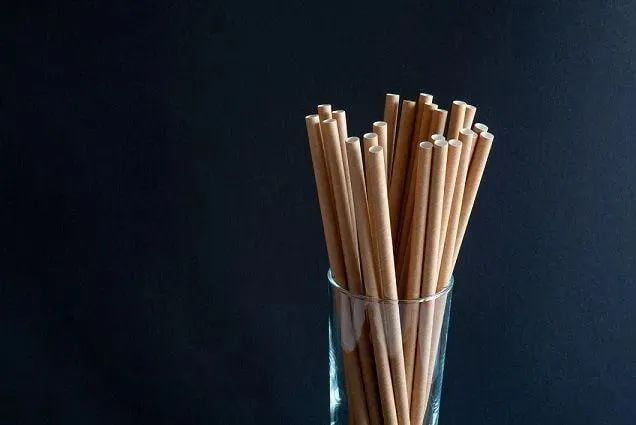The paper straws people currently use are not made entirely of paper, as paper tends to get wet, so paper straws are generally coated, and these coatings are not 100% biodegradable and can damage the environment. In a new study, Korean scientists have developed a 100% biodegradable and non-wetting eco-friendly paper straw that not only outperforms traditional paper straws, but can be mass produced at low cost. The study is published in the latest issue of the journal Advanced Science.

Paper straws are most commonly coated with polyethylene or acrylic resin, and paper cups are coated with the same material as paper straws. Numerous studies have previously shown that the polyethylene coating on discarded paper cups breaks down into microplastics. In addition, traditional paper straws get wet after prolonged contact with liquids, making them inconvenient to use. Polylactic acid straws and straw straws are alternatives to paper straws, but the former cannot be decomposed in the ocean; the latter, although easily decomposed, is difficult to produce on a large scale.
In the latest research, scientists at the Korea Institute of Chemical Technology have developed a 100% biodegradable and environmentally friendly paper straw. They synthesized polybutylene succinate, a biodegradable plastic, by adding a small amount of cellulose nanocrystals to create a coating material. Given that cellulose nanocrystals are the same as the main component of paper, the newly developed plastic can firmly adhere to the paper surface. Because the coating material covers the surface of the straw evenly and firmly, the straw is less likely to become wet, and the coating material is made of biodegradable plastic, which is also completely decomposable.
Studies have found that eco-friendly paper straws stay intact in both cold and hot beverages. The straws do not get wet when used to stir drinks such as water, tea or milk, or when in contact with liquids for a long time. Traditional paper straws bend severely when they are soaked in cold water at 5°
The new straws also decompose well in the ocean. It was found that the total weight of ordinary plastic straws and PLA straws was only reduced by 5% when they were immersed in seawater for 120 days, while the new straws were reduced by more than 50% after being immersed in seawater for 60 days, and completely decomposed after 120 days.

